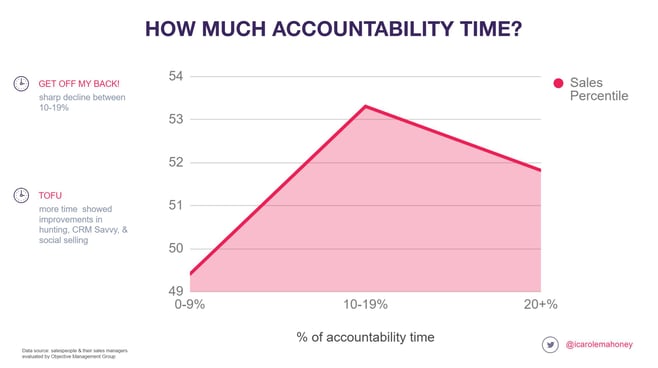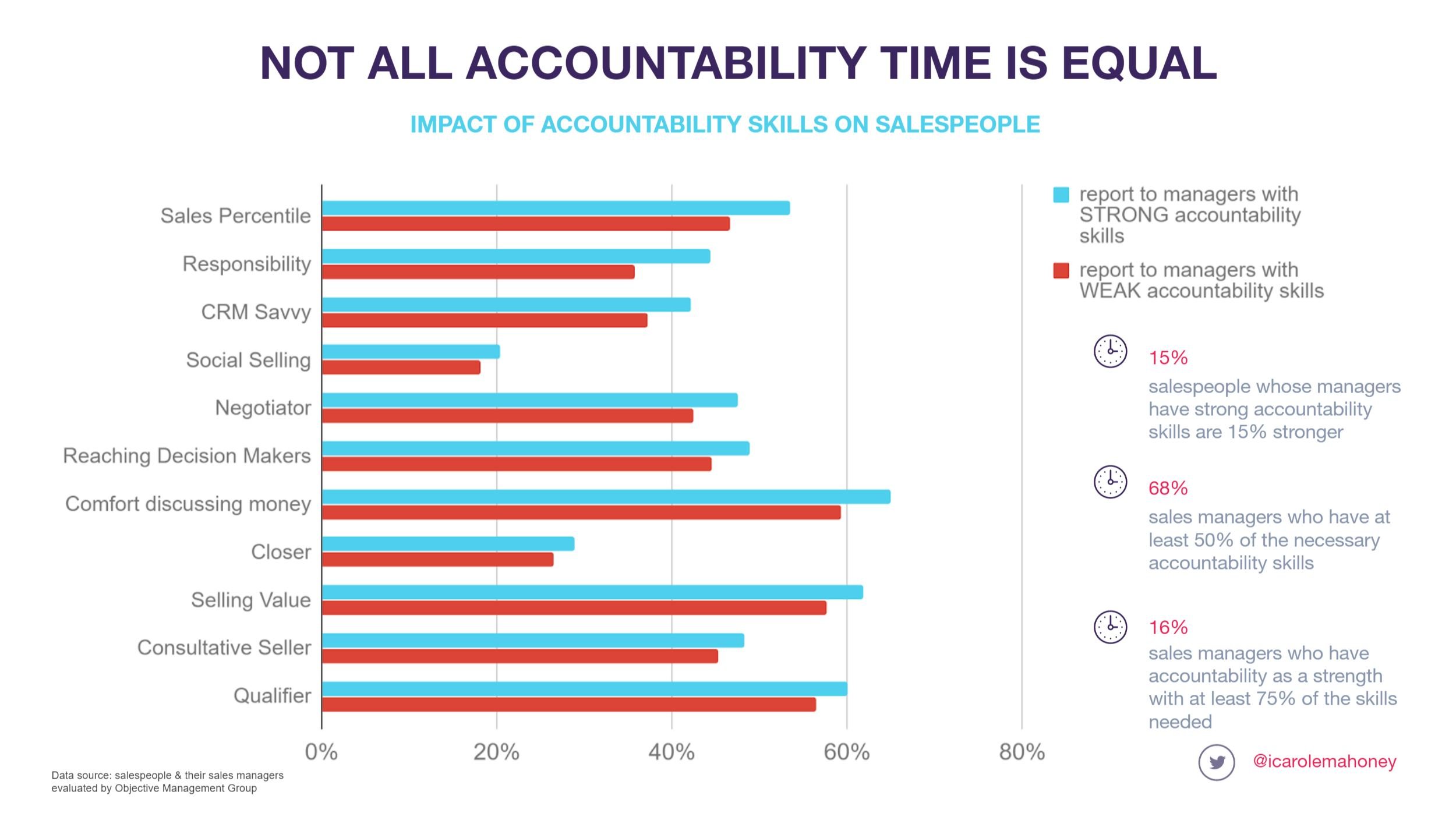
Accountability. It seems so simple- just do what you say you would, right? However, there are a lot of variables that will influence whether it has a positive, or negative impact.
One case study done with the United Kingdom's Royal Air Force showed that accountability can promote effective learning, if people report problems quickly, accurately and take follow‐up action. But this only happens if reporting failures doesn’t result in punishment.
One study of 40,000 people showed they only got feedback when something goes wrong and they had no idea what the company is trying to achieve. This same study showed that out of those who need to hold others accountable, they either try and fail or avoid it altogether.
Managers who spent more than 10-19% of their time in accountability saw a sharp decline in the competencies of their salespeople. If you hear your managers complain about having to babysit salespeople, it could be due to the hiring profile, and you may need to screen for those who take more responsibility for their outcomes.

The only areas where salespeople benefited from more than 10-19% of a managers time in accountability impact the top of the funnel. So perhaps consider putting more accountability time into your BDR team. Or even better, build a team that is accountable to each other and themselves.
Accountability isn’t about babysitting any more than motivating is about cheerleading.
Why do managers struggle?
It is likely because they are going about it in the wrong way. The majority of Sales Managers have half of the competencies to hold their salespeople accountable. Only 16% have it as a strength. As a result, accountability is likely taking place when they find out something went wrong, rather than a framework to ensure results happen.

But when a sales manager does have strong accountability skills, salespeople who report to these managers are 15% stronger compared to their counterparts whose sales managers do not have strong accountability skills.
How can sales managers help their sales teams set motivating goals and keep them accountable?
A study done at the Dominican University randomly placed participants into 5 groups.
- Group 1- needed to only think about their goals.
- Group 2- needed to think about and write their goals down.
- Group 3- needed to think about, write, and create action commitments around their goals.
- Group 4- needed to think about, write, create action commitments,and share their goals with a supportive person.
- Group 5- needed to think about, write, create action commitments, share it with a supportive person, and make weekly reports to that person.
Those in group 5 accomplished significantly more than any other group.
What you can do today.
Go through the goal setting exercise with managers to help them identify and align their personal goals to the company’s goals. Help them daydream and visualize what it will feel like when they reach their goal and how they will celebrate.
Keep them accountable to writing it down. Create a measurable action plan with necessary activities and strategies to overcome challenges. Have managers report their progress regularly and give recognition.
This will give them the experience and model to do it with their sales teams.







